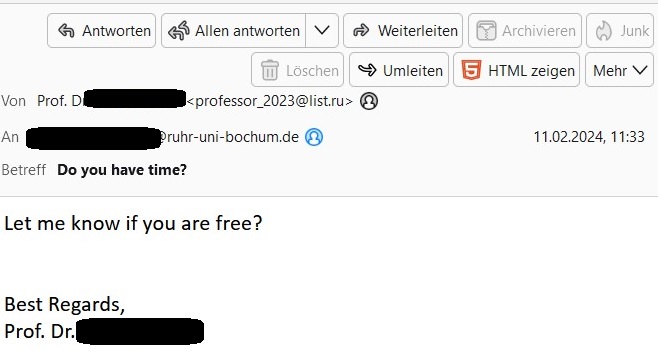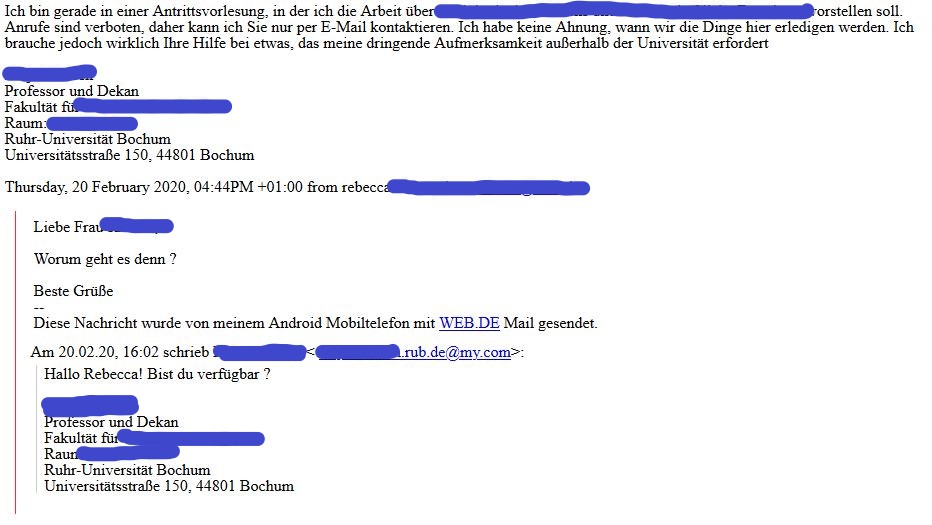A new flood of fraudulent e-mails is currently rolling over the RUB. RUB employees are receiving emails - supposedly from the private email addresses of higher-ups. Those who reply are asked to buy credit cards after a short exchange of emails. Employees, guests or students regularly fall for this fraudulent scam and are left with the (private) loss.
Check whether the e-mail is coming from your superiors and whether it matches your previous communication style and history with them. If you do not know the sender's address and whenever you are unsure, ask via verified channels (e.g. RUB mailboxes or telephone). Inform your superiors that fake e-mails are being sent in their name.
Advise new employees, student employees, SHKs or guests of the danger. Avoid replying to the fake sender.
Inform your team if you become aware of fraudulent emails in your name.
Agree with your team which other channels you will use to communicate if necessary. Raise awareness among employees and encourage new employees in particular to ask questions in cases of doubt. Only use your RUB e-mail address for all e-mail communication, especially for official matters.
We take every effort to ensure that such mails do not reach the addressees. Unfortunately, constantly changing senders and contents complicate the rejection and filtering of spam mails. It is essential that you activate the RUB spam filter - spam filtering is automatically activated for Exchange users (information about the RUB spam filter (german text)). Many fraudulent e-mails - and especially those with a faked RUB sender address - are already classified as spam.
If you want to inform us about such fraud attempts, we require the entire e-mail as an attachment (by e-mail to abuse@ruhr-uni-bochum.de). Only by receiving the e-mail as an attachment we can initiate complaints and improve spam filtering.
Google provides recommendations for reporting incidents with Google Play cards.
Examples of contacting and further communication:

